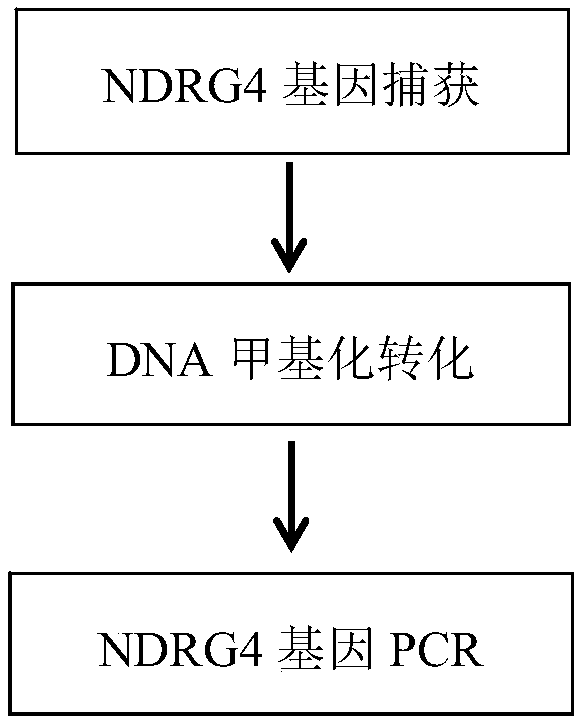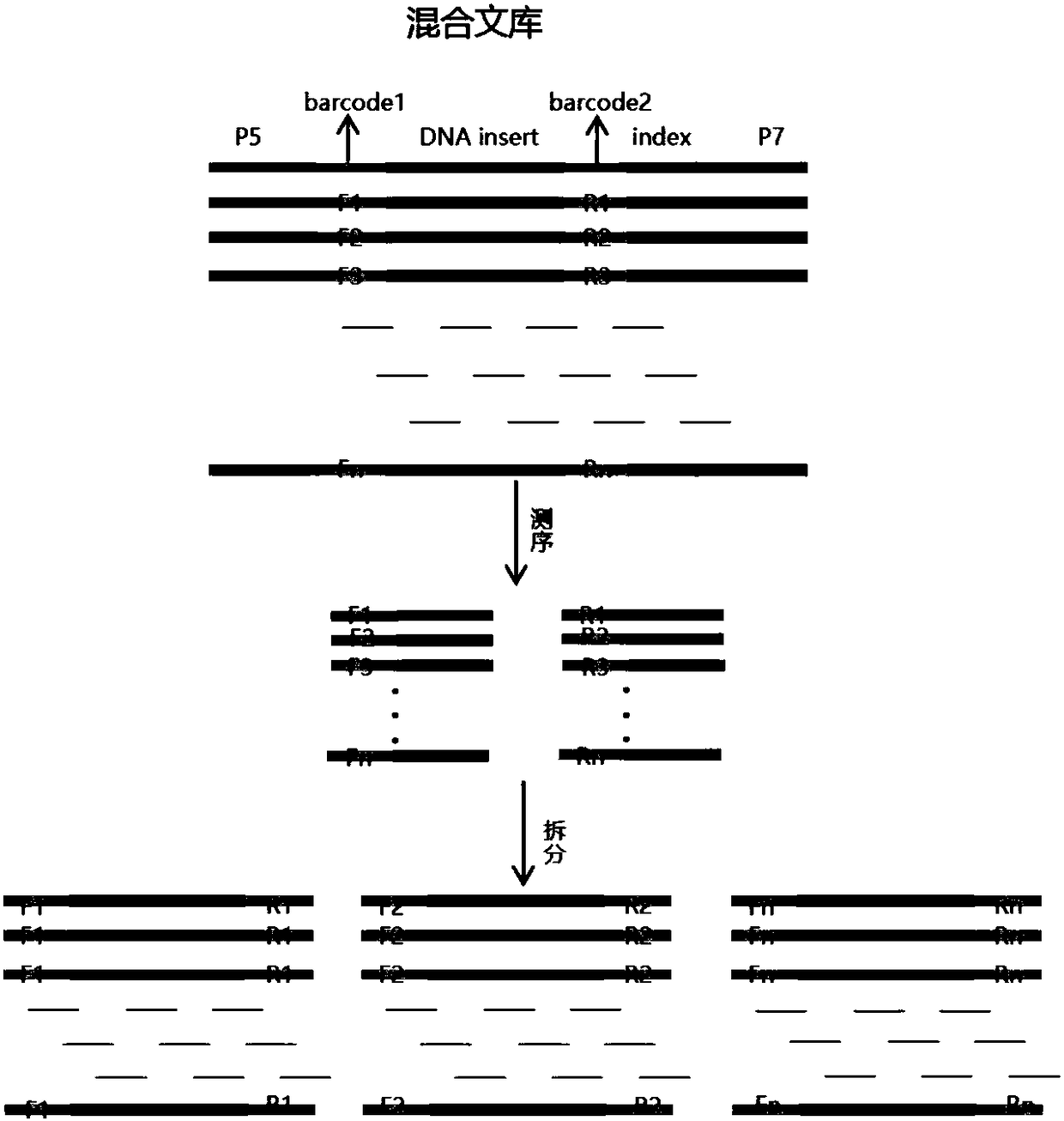Method and system for determining colorectal tumor cells on basis of KRAS and NDRG4 genes
A colorectal tumor and gene technology, applied in biochemical equipment and methods, microbial determination/examination, instruments, etc., can solve the problems of low patient compliance, poor specificity, and low sensitivity, and achieve accurate and specific diagnosis. Effect
- Summary
- Abstract
- Description
- Claims
- Application Information
AI Technical Summary
Problems solved by technology
Method used
Image
Examples
Embodiment 1
[0044] Select clinical samples with different course distributions of colonoscopy cases from Lanxi Red Cross Hospital, the Second Affiliated Hospital of Xi'an Jiaotong University, Xijing Hospital, and Tangdu Hospital from 2016 to 2017, including 77 cases of colorectal tumors and 204 cases of asymptomatic people stool samples. The above samples were subjected to gene capture and high-throughput sequencing, and their clinical and pathological information were collected at the same time. Finally, the genome sequencing results and clinical information were comprehensively analyzed to construct a colorectal tumor cell detection model.
[0045] (1) Gene capture and high-throughput sequencing
[0046] Fecal samples were subjected to gene capture and high-throughput sequencing in our laboratory (see figure 1 ). Extract the genomic DNA of the sample to be tested, and use the probe to capture the target genes KRAS and NDRG4; use the bisulfite conversion method to convert the NDRG4 gen...
Embodiment 2
[0075] Listed 6 cases of volunteers who were treated in Lanxi Red Cross Hospital, the Second Affiliated Hospital of Xi’an Jiaotong University, Xijing Hospital, and Tangdu Hospital, the process of applying the model to obtain the consistency judgment of the variable results measured by NGS technology.
PUM
 Login to View More
Login to View More Abstract
Description
Claims
Application Information
 Login to View More
Login to View More - R&D
- Intellectual Property
- Life Sciences
- Materials
- Tech Scout
- Unparalleled Data Quality
- Higher Quality Content
- 60% Fewer Hallucinations
Browse by: Latest US Patents, China's latest patents, Technical Efficacy Thesaurus, Application Domain, Technology Topic, Popular Technical Reports.
© 2025 PatSnap. All rights reserved.Legal|Privacy policy|Modern Slavery Act Transparency Statement|Sitemap|About US| Contact US: help@patsnap.com



